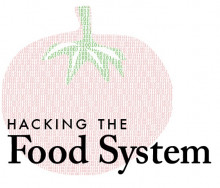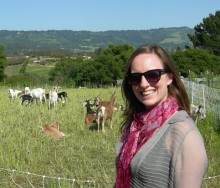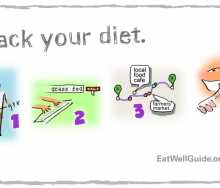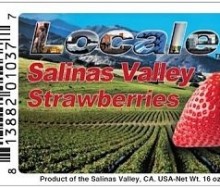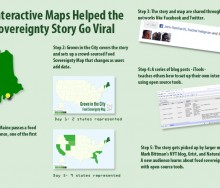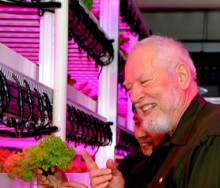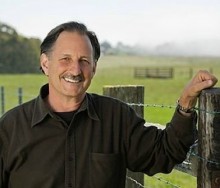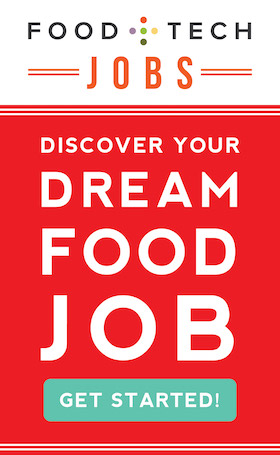We had an amazing response - with more than 27 thought leaders responding to our question, and counting! The conversation will continue at Food+Tech Connect on Wednesdays, but be [...]
My focus has mainly been on solutions that try to pull some larger "levers of change" in the food system. Lately I've been talking with some funders and investment advisors who are[...]
People are increasingly aware of the pitfalls of our current food system. The question is, how do we fix it?[...]
I’ve never been on a food rollercoaster, but I imagine if one existed, it would last ten years and take place from 2011-2021.[...]
In a 1984 retirement speech delivered to his colleagues at Cargill, my grandfather called for a renewed focus on the people agriculture serves.[...]
By cultivating local connections among consumers and producers of fresh, sustainable food, Eat Well Guide helps you hack your diet through access to healthy locally grown food.[...]
The same product item number that is required by wholesale buyers for traceability or food safety, can also provide marketing benefit for a product by connecting consumers with pro[...]
When I was a kid in the 80s, my Mom would tell me to eat everything on my plate - because kids were starving in Ethiopia. There came a time when that argument started to seem ridic[...]
I believe that we will start to see a new factor: social food cooperatives. Social tools will lead to an alternative food system to the extent that people choose to spend more time[...]
My hope is to slowly bring to light the personal and unique flavors of the American culture and, in doing so, not simply create a more authentic narrative of our food culture, but [...]
We live in a backward world. A world where it is strange to know where our food comes from. Foods that are grown and processed without adulteration have to prove it, while the use [...]
This year we witnessed first hand the power of open source tools to quickly spread the word about food system policy and planning. When Sedgwick, Maine passed the first food sover[...]
It takes millions and millions of tons of food to feed a city. Somehow, enough milk and produce and soda makes its way to, say, Los Angeles; somehow it all gets distributed — frequ[...]
My current work focuses on creating software that improves the home cooking experience. Over the past two years, I've worked with food writer Michael Ruhlman, and together we've st[...]
The future of urban agriculture is not vertical, nor even simply horizontal. It is distributed and networked throughout the city. In a growing number of cities, suburbs,and small t[...]
The food tech revolution is now underway. Every day we're seeing new opportunities created for technology to improve the food supply chain, whether it be better farm management, on[...]
The digitization of food has ensured a critical mass of content surrounding many, but not all of the food choices we make. Web and mobile restaurant platforms provide recommendatio[...]
I’d like to tell you the story of the Ultimate Chocolate Chip Cookie Recipe. This isn’t the Neiman Marcus $65,000 cookie recipe. Nor is it the classic Toll House Chocolate Chip Coo[...]
The difference is that today our technological progress is more focused on the flow on information as opposed to goods. It's not about moving hard goods faster or centralizing oper[...]
We can think about how to hack the food system through both pragmatic and applied innovation, and also through imaginative and critical engagements with agriculture and food. One o[...]
During an age when any worldly fact or detail can be found on the Internet with just the click of a button, it's no wonder technology has infiltrated its way into all industries. T[...]
Organic, sustainable food needs to become more affordable. Why is it expensive? Organic agriculture is inherently economical: it requires few inputs and it doesn’t deplete scarce r[...]
[Hacking the Food System is an online conversation exploring how technology, information and data can change the food system status quo. Join the conversation below, on Twitter (ha[...]
The construction of the world’s first vertical farms have amply demonstrated to even the most outspoken critics that indoor farming in tall buildings is not only feasible but entir[...]
For me, one of the main issues I see in agriculture is confusion in the marketplace. There are all kinds of labels, and the ways stores and brands use terms like “organic,” “human[...]
18 Feb 2025
, 0 Comment
17 Dec 2024
, 0 Comment
Copyright © 2015
Food+Tech Connect. All Rights Reserved. Made in New York.

